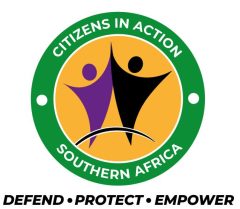Southern Africa is characterized by growing inequality and discrimination against women, youth, and people with disabilities and sexual and gender minorities, in the face of progressive national, regional and international laws and human rights instruments. Political and economic trends have further compounded inequality and social exclusion, and insecurity. The CIASA equality and non-discrimination interventions contribute towards equality, protection and enjoyment of the rights of marginalized communities in Southern Africa. Southern Africa is characterized by socially and legally repressive environment that negatively affects health outcomes of certain populations such as LGBTIQ persons, Women Living with HIV, sex workers, persons who inject drugs and persons in need of palliative care amongst others. The Health and Rights Program addresses the underlying systemic/structural determinants of health. This is through enhancing the agency of the affected populations to improve the social, legal, governance contexts to create enabling environment and accountability for equitable health outcomes for all, particularly for most marginalized in our society.
The program aims to achieve the following specific objectives
- Laws, policies and practices adopt equality and non-discrimination as guiding principle and standard (removal of formal/structural barriers to access and participation supported).
- Full and effective participation of marginalized constituencies in decision making at all levels is promoted.
- Contributions and aspirations of marginalized constituencies fully recognized and capacitated as equal partners in development and in society.
- Enhance equality, protection and enjoyment of the rights of marginalized communities.
- Enhanced capacity of persons currently affected by marginalization to challenge the dominant socio-cultural narratives and norms that perpetuate their exclusion and marginalization.
- Empower the marginalized groups to gain a sense of their own power, including the capacity to define and prioritize their issues to advance their rights, including right to health in formal policy spaces as well as in the informal community spaces.
- To advance gender equality as matters of human rights and conditions for social justice in view to build a sustainable, just and developed society and end violence against women and girls in all its forms
Desired Outcomes
- A violence free society with women freely express themselves across all spheres.
- Gender Equality, Gender Equity, Gender Mainstreaming and Integration.
